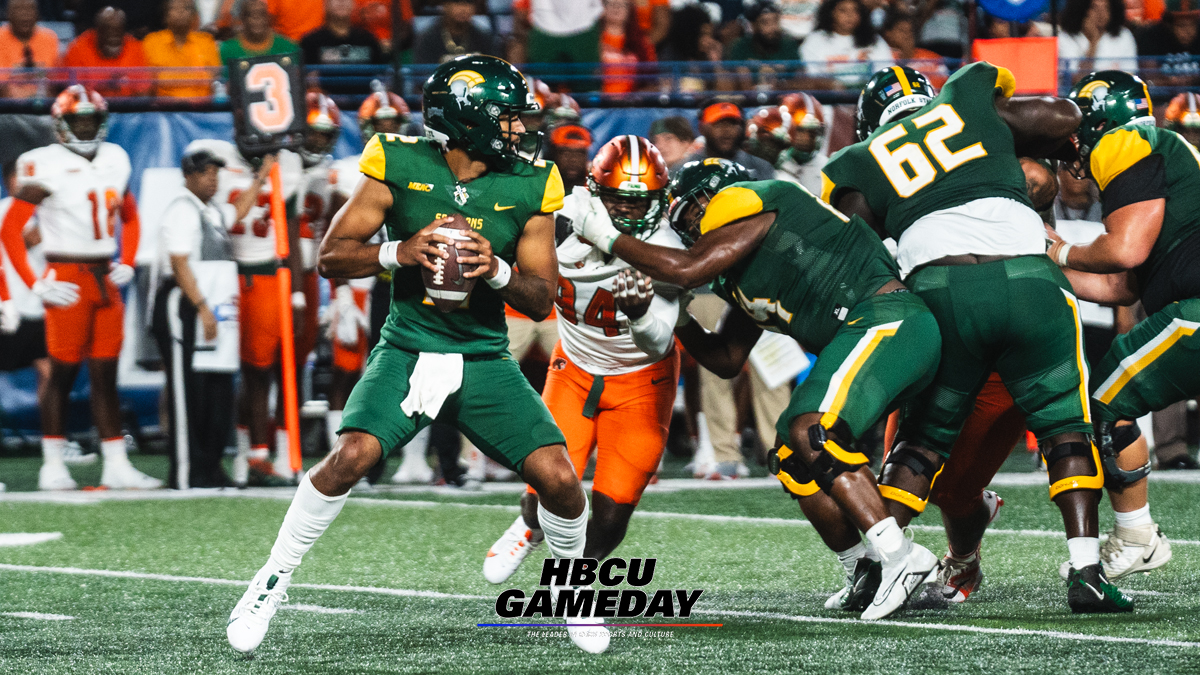The Week Zero football television ratings are in and the MEAC/SWAC Challenge featuring defending HBCU national champion FAMU and Norfolk State was truly a record-setting broadcast.
A total of 1.3 million viewers tuned in to see the SWAC’s Florida A&M defeat the MEAC’s Norfolk State on Saturday night – a record for the game nearing its second full decade, according to ESPN. The game was broadcast on ABC starting at 7:30 PM.
FAMU, the defending HBCU national champion, beat Norfolk State 24-23 in the ABC primetime matchup.
Saturday’s matchup between the two HBCU squads outdrew the television ratings from the 2010 game featuring Delaware State and Southern University, which drew an audience of 1.016 million viewers on ESPN.

The 2021 matchup between North Carolina Central and Alcorn State attracted an average of 1.002 million viewers, marking it as the second-highest in the event’s history. This game also saw a peak audience of 1.1 million during a 15-minute window.
These viewership figures underscore the growing popularity of the MEAC/SWAC Challenge, which continues to be a marquee event for HBCU football, benefiting from prime time slots on major networks like ESPN and ABC. The consistent increase in ratings, particularly in recent years, highlights the enduring appeal and expanding reach of this HBCU showcase.
About the MEAC/SWAC Challenge
The MEAC/SWAC Challenge is an annual HBCU football game showcasing a team from each of the two NCAA Division I conferences made up entirely of HBCUs–the Mid-Eastern Athletic Conference (MEAC) and Southwestern Athletic Conference (SWAC). The series began in 2005 and initially paired the defending conference champions, although the selection process was broadened in 2007 to include non-champions as well. The series record currently stands at 11 wins for the MEAC to the SWAC’s seven (along with a “no contest” game in 2016, and a cancellation in 2020). The Challenge is televised nationally on ESPN and is owned by ESPN Events. It was historically associated with the Labor Day weekend, but starting in 2021 has instead taken place a week earlier during college football’s Week Zero.
